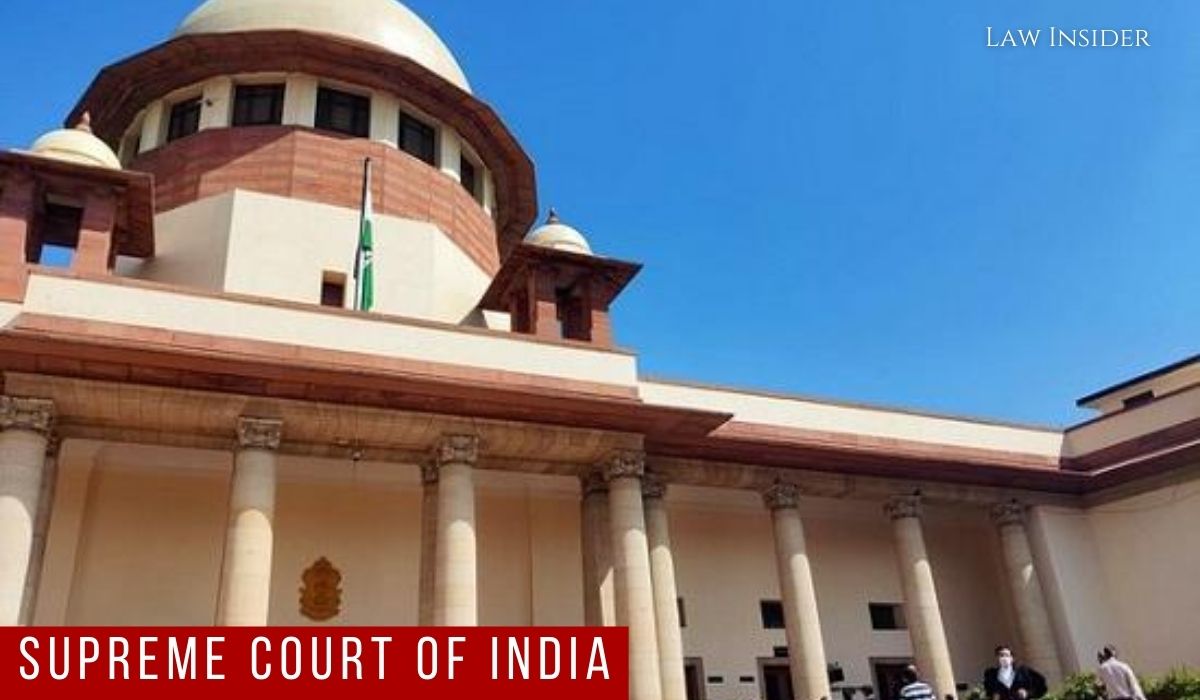Tanisha Rana
Published on: October 16, 2022 at 21:35 IST
The Supreme Court recently overturned the death sentence of a man who had been convicted and sentenced to death by the lower court for the murders of his wife and four of their young daughters, citing a hurried investigation and a lacklustre cross-examination of witnesses by the accused’s legal aid counsel.
Justices S. Ravindra Bhat and J.B. Pardiwala, together with Chief Justice of India Uday Umesh Lalit, advised the trial courts to employ skilled attorneys as legal aid counsel, particularly in cases involving serious offences.
“This case provides us an opportunity to remind the learned District and Sessions Judges across the country conducting sessions trials, more particularly relating to serious offences involving severe sentences, to appoint experienced lawyers who had conducted such cases in the past.”
“It is desirable that in such cases senior advocate practicing in the trial court shall be requested to conduct the case himself or herself on behalf of the undefended accused or at least provide good guidance to the advocate who is appointed as amicus curiae or an advocate from the legal aid panel to defend the case of the accused persons,” the Court said.
It emphasised that Section 304 of the Criminal Procedure Code (CrPC) and Articles 21, 22, and 39A of the Constitution set forth the significance of high-quality legal representation for accused parties in order to ensure a fair trial.
Therefore, the Court believed that trial courts should refrain from patronising new bar members by designating them as legal aid counsel in difficult matters.
An appeal against an Allahabad High Court ruling upholding the conviction and death sentence of Ramanand alias Nandlal Bharti, who was accused of murdering his wife and four children while they were asleep, was being heard by the Supreme Court.
According to the prosecution, the accused had an extramarital affair and desired to wed the other woman. He eliminated his wife and his four young girls because his wife opposed the same.
The appellant had been found guilty by the trial court on the basis of extrajudicial confessions, a compelling reason, a fabrication, and unnatural behaviour on his part.
The apex court acknowledged right away that since there were no eyewitnesses, the case was solely supported by circumstantial evidence.
The Bench came to the conclusion that the circumstances surrounding the extrajudicial confession and weapon finding could not be proven after carefully examining the grounds on which the trial court had relied.
“The chain of circumstantial evidence snaps so badly that to consider any other circumstance, even like motive, would not be necessary,” the Court said.
“We have ruled out the circumstances relating to the making of an extrajudicial confession and the discovery of the weapon of offence as not having been established.”
The Court acknowledged that the crime was heinous and repugnant to the human conscience, but that alone is insufficient to convict the accused in the absence of proof.
Even though the crime is horrific and repulses the human spirit, the Court emphasised that an accused person can only be found guilty based on legal evidence and if a chain of circumstantial evidence has been gathered in such a way as to rule out the possibility of any other reasonable hypothesis besides the accused’s guilt.
The apex court made a point of noting that the accused was given legal assistance counsel because he might not have been able to pay a competent and seasoned trial lawyer to represent himself.
The apex court made a comment about the points put out by the legal aid attorney during the trial that the cross-examination of each witness was subpar.
“Inquiries that the defence attorney was supposed to ask the prosecution witnesses were asked, oftentimes without the defence attorney being aware of or understanding the potential legal ramifications of the replies.”
“Especially when the questions weren’t necessary. The defence attorney continued to be ignorant of the legal position that the accused is bound by any suggestions made by the defence to the witnesses and their answers,” the judgment said.
The judges made it quite apparent that it is the state’s responsibility to make sure that the legal aid counsel offered is not only for show but rather is of the highest quality.
” … a threshold level of competence and due diligence in the discharge of his duties as a defence counsel would certainly be the constitutional guaranteed expectation. The presence of counsel on record means effective, genuine and faithful presence and not a mere farcical, sham or a virtual presence that is illusory, if not fraudulent,” the bench underscored.
The Supreme Court stated that extreme poverty should never be a justification for withholding justice or a fair trial in Ranchod Mathur Wasava vs. State of Gujarat.
“Therefore, particular attention should be paid to appoint competent advocates, equal to handling the complex cases, not patronising gestures to raw entrants to the Bar. Sufficient time and complete papers should also be made available to the advocate chosen so that he may serve the cause of justice with all the ability at his command, and the accused also may feel confident that his counsel chosen by the court has had adequate time and material to defend him properly.“
In light of the foregoing, the Court granted the appeal and acquitted the accused.
The Uttar Pradesh government was represented by attorney Adarsh Upadhyay.
For the appellant, senior attorney S. Niranjan Reddy was present.
Case Title: Ramanand vs. State of Uttar Pradesh

